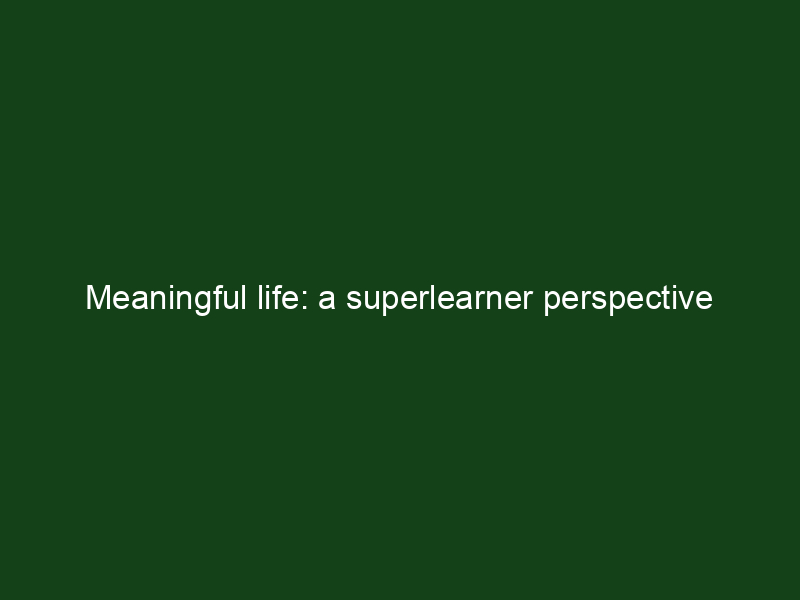For a superlearner having a meaningful life is a bit more than it is for most people. Being able to learn fast is a power, and with power comes responsibility.
What is considered to be life fulfilment for most people? Finding a job that brings food on the table, having a couple of kids, contributing to the community during weekends, having a vacation once a year. If you are a superlearner you may add some constraints. Your job should probably be meaningful e.g. have potential of changing lives of many people in a good way. Your kids should get a great education that will allow them to become superlearners when they grow up. Your spare time should be spent on something interesting: educational, creative or lifechanging. You may decide to skip a vacation for a year, or have a very long vacation dedicated to learning a totally new skill. While most other people want to have fun, you may feel urge to change the world. And you will probably have much higher expectation from yourself than is healthy for a happy human being.
So how do I personally deal with inflating expectations and try to create a meaningful life?
- Plan big, live small. It is very good to have huge plans and great projects, but these huge ideas take a lot of time to implement and often fail one way or another. While it is important to have a mission, it is equally important to enjoy small everyday things like cooking or driving.
- Playing is hard work and a job is a game. I find that I enjoy my work very much. I create small secret challenges which I try to complete, I socialize with great people, I try to innovate where I can, my job is extremely creative. Then I come home and play with kids a bit, clean up the apartment and make food, and I let my mind go blank for a while. When I learn a new skill or try to prepare food for the family or have a meaningful discussion with kids or play a game with them, I do try to get the best results I can get: I read about the subject and I train to get the best results. This way I learn from having fun and combine pleasure.
- Be responsible for your actions, not for the universe. Things do not work out as planned quite often. It does not help to think too much about the things you did not know and could not change. It is nice to be grateful when the things work out just fine, but if they fail it is a great opportunity to learn and reiterate.
- Family comes first and last. Family is something that we meet early in the morning and late in the evening. During the day we do not have much time for our families, and maybe this is a good thing – our family members need some space too. Also, family plays a crucial part when we are kids and elders, but when we are in our prime we need to balance many activities. If we fail to balance one way or another, it does not mean we can fix our mistake later on: it is best to avoid extremes, as they do not cancel each other.
- Own a bucket list, but do not allow it to own you. We may want to do much more than we can. Or we may be so tired we do not want anything. Either way it is better to have a prioritized list of what we want to do, and not try to do it all at once.
- Return to the mean. We adapt to the changes very quickly, and need increasing amount of something to get the same emotional response. If we balance ourselves quickly we will have the emotional response each time, but if we inflate our needs we will build thirst nothing can fulfill. This is also true with learning: the more we learn the more we will want to know, so we do risk drowning in knowledge we cannot readily apply.
This are just my thoughts. You may have different thoughts. Please share 🙂

Get 4 Free Sample Chapters of the Key To Study Book
Get access to advanced training, and a selection of free apps to train your reading speed and visual memory

